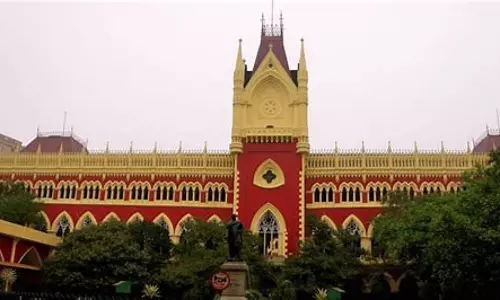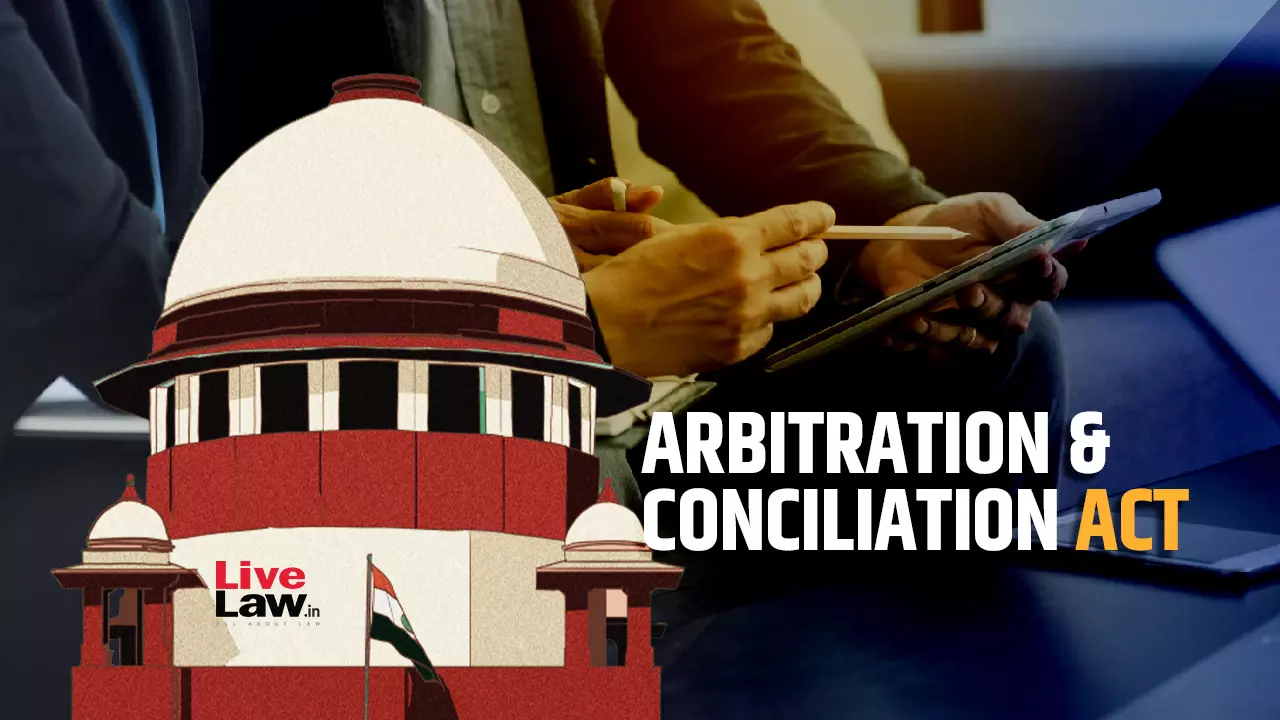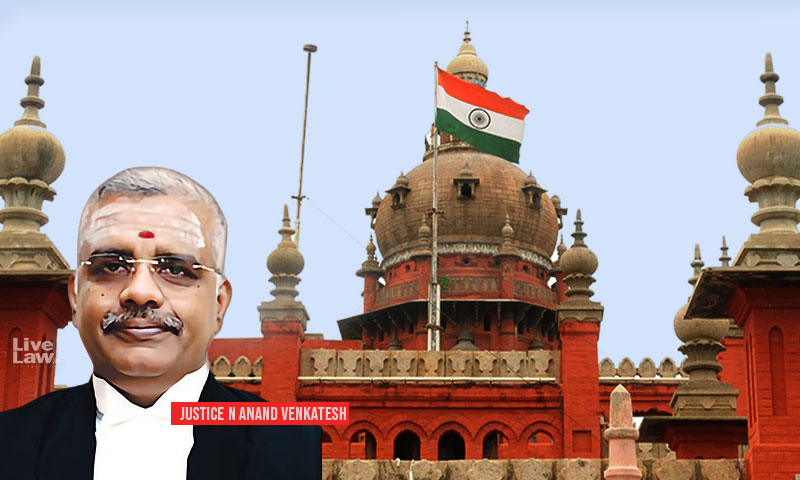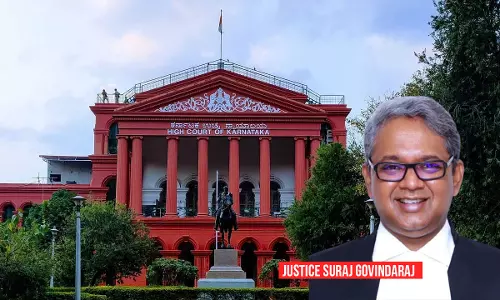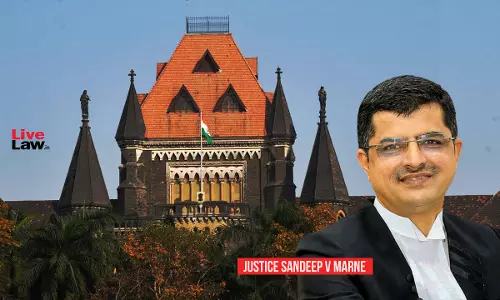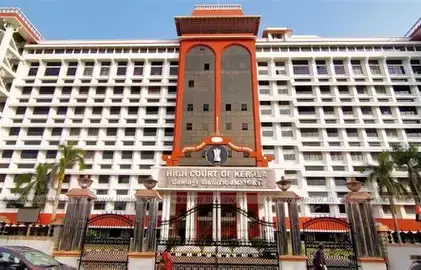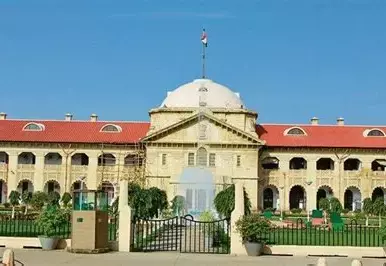Arbitration
LiveLawBiz: Business Law Daily Round-Up: December 03, 2025
TAX'GST Is Fiscal Compliance, Not Regulatory Exemption': J&K High Court Says Brick Dealers Still Need Licence Under Brick Kiln ActS. 148 Income Tax Act | Reassessment Based On Mere Change Of Opinion Without Concrete Evidence Not Justified: Gujarat High Court24K Oval Pendants Qualify As Gold Jewellery, Eligible For Duty Exemption: CESTAT HyderabadCentre Says Tax Exemption For...
Parties' Conduct Overrides Clause: Calcutta High Court Rejects Literal Interpretation Of Arbitration Venue Clause
The Calcutta High Court on Tuesday dismissed Chittaranjan Locomotive Works' application for an unconditional stay of an arbitral award dated March 14th, 2024. Justice Shampa Sarkar on 2nd December, 2025 ruled that the conduct of the parties and arbitrator and the award publication proceedings in Kolkata constituted “contrary indicia”, sufficient to displace Chittaranjan as...
PSU Objects To International Arbitration Being Moved From Delhi To London; Supreme Court Questions Change Of Venue For Convenience
The Supreme Court on Wednesday heard a dispute between NMDC Steel Ltd, a Public Sector Undertaking of the Government of India and Italian company Danieli & C. Officine, regarding the shifting of the place of hearing of the international arbitration between them from Delhi to London.The bench comprising Chief Justice of India Surya Kant, Justice Ujjal Bhuyan and Justice NK Singh was hearing...
Bombay High Court Upholds ₹96 Lakh Award Against TCS In Hardware Supply Dispute With Inspira
The Bombay High Court on Tuesday upheld an arbitral award directing Tata Consultancy Services Ltd. to pay Rs. 96.20 lakh to Inspira IT Products Pvt. Ltd. for the loss suffered on 207 servers and monitors that Inspira purchased for TCS but could not deliver after TCS failed to finalise delivery locations. The court rejected cross-appeals filed by both the parties. A single bench of...
LiveLawBiz: Business Law Daily Round-Up: December 02, 2025
TAX AssessmentOrder Passed Without Awaiting DVD Report Violates S. 50C(2) IncomeTax Act: ITAT Ahmedabad 'WritNot Maintainable In Face Of Disputed Ownership': Delhi High Court InCustoms Gold Confiscation Case S.153C Income Tax Act | Public Info, Unrelated Data Seized FromSearched Person Not Enough To Issue Show Cause Notice: Gujarat HighCourt IncomeTax Act | S. 153C Proceedings Unsustainable...
Madras High Court Upholds Arbitral Award Directing MediaOne To Pay ₹1.23 Crore In 'Maatraan' Film Dispute
In a rejection of a challenge to an arbitral award, the Madras High Court has upheld the Sole Arbitrator's decision directing MediaOne Global Entertainment Ltd. to pay over 1.23 crores in relation to an agreement over the release of the film “Maatraan”. Dissmissing a plethora of arguments contended by the Petitioner, Justice N. Anand Venkatesh on 28th November 2025 ruled that...
Statutory Remedy Under Cooperative Societies Act Inapplicable When Arbitration Clause Exists: Karnataka High Court
The Karnataka High Court has reiterated that if an arbitration clause were to exist in an agreement between the parties and the dispute were required to be adjudicated by way of arbitration, then the statutory requirement under the Cooperative Societies Act would not apply.Justice Suraj Govindaraj said this while allowing the petition filed by Ramakrishna House Building, which had approached...
LiveLawBiz: Business Law Round-Up: November 29 - December 1, 2025
IBCIBC | Terminated Contract Not Corporate Debtor's Asset; Moratorium Won't Revive Extinguished Contractual Rights : Supreme CourtNCLT Mumbai Rejects Indo Global Employees' Claims Filed 18 Months Late, Says Stakeholders Must Be VigilantLiquidator Must Recover Assets Even If Attached By Third Parties, Attachment Cannot Override IBC: NCLT BengaluruBuyers Of Commercial Units Are Not...
“Shall Endeavour” Clause In Construction/Commercial Contracts Can Create Enforceable Obligations: Bombay High Court
The Bombay High Court has observed that the “shall endeavour” clause can amount to an enforceable obligation in the context of construction contracts. While mere failure to achieve revenue projections does not constitute a breach of the “shall endeavour” clause but not making best efforts to achieve projections in the business plan amounts to a breach of the clause. Facts...
Single Partner In A Firm Cannot Invoke Arbitration Without Explicit Authority From Other Partners: Kerala High Court
The Kerala High Court has held that one partner of a partnership firm cannot, without explicit authorisation from the other partners, invoke an arbitration clause or seek appointment of an arbitrator under Section 11 of the Arbitration and Conciliation Act, 1996.Justice S. Manu, delivered the judgment in an arbitration request.The arbitration request was filed by a partner of M/s P...
Arbitration | No Review Or Appeal Lies Against Order Appointing Arbitrator : Supreme Court
The Supreme Court observed that a review or appeal from an order of appointment of an arbitrator is impermissible.“Once an arbitrator is appointed, the arbitral process must proceed unhindered. There is no statutory provision for review or appeal from an order under Section 11, which reflects a conscious legislative choice.”, the Court held, while setting aside the Patna High Court's...
HC Cannot Issue Writ To Compel Arbitrator To Decide Dispute After Expiration Of His Mandate: Allahabad High Court
The Allahabad High Court has recently clarified that it cannot issue a writ of mandamus to compel an arbitrator to decide compensation disputes relating to land acquisition for making national highways, once his mandate has expired under the Arbitration and Conciliation Act, 1996. A Division Bench of Justice Mahesh Chandra Tripathi and Justice Kunal Ravi Singh observed...




